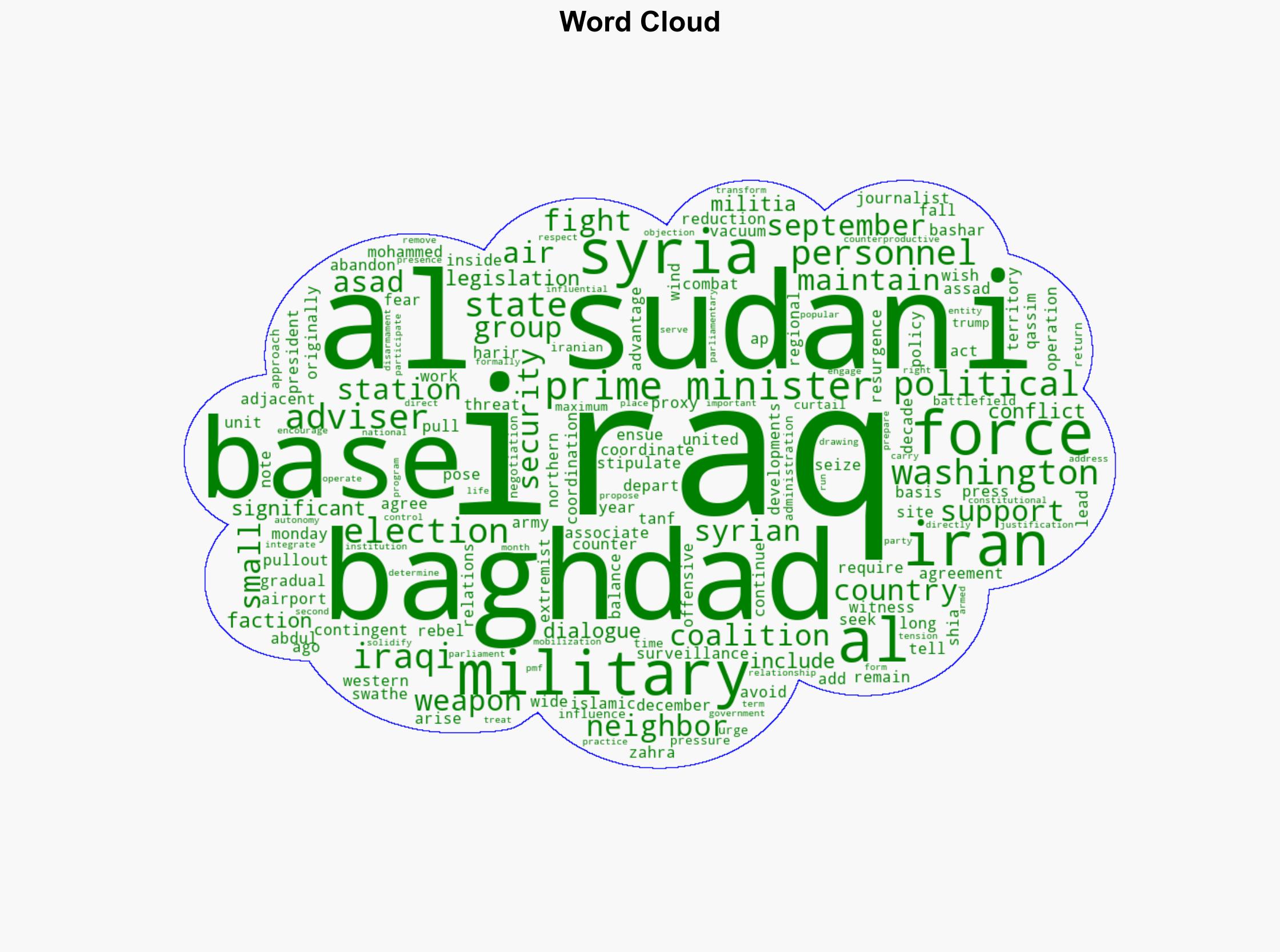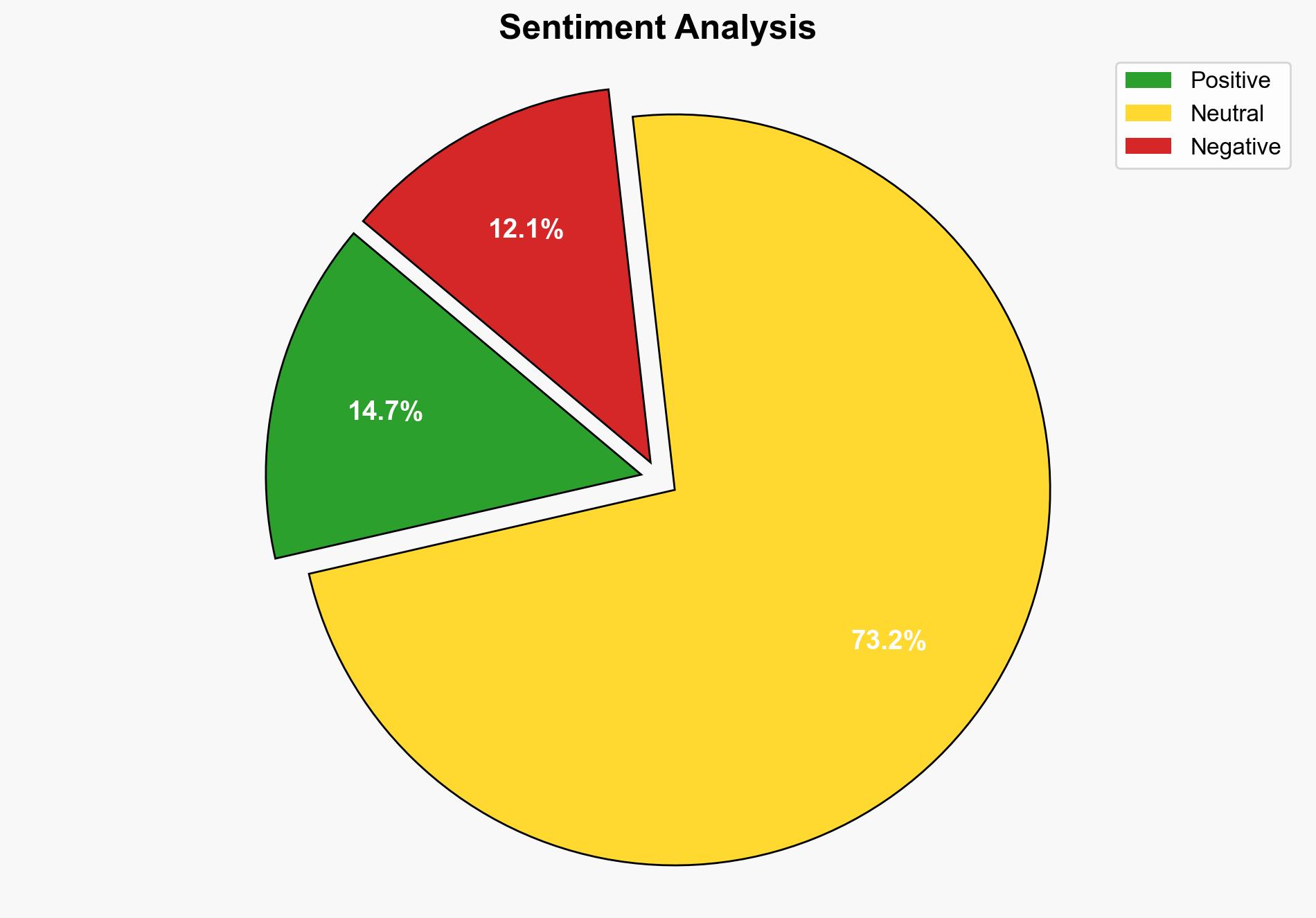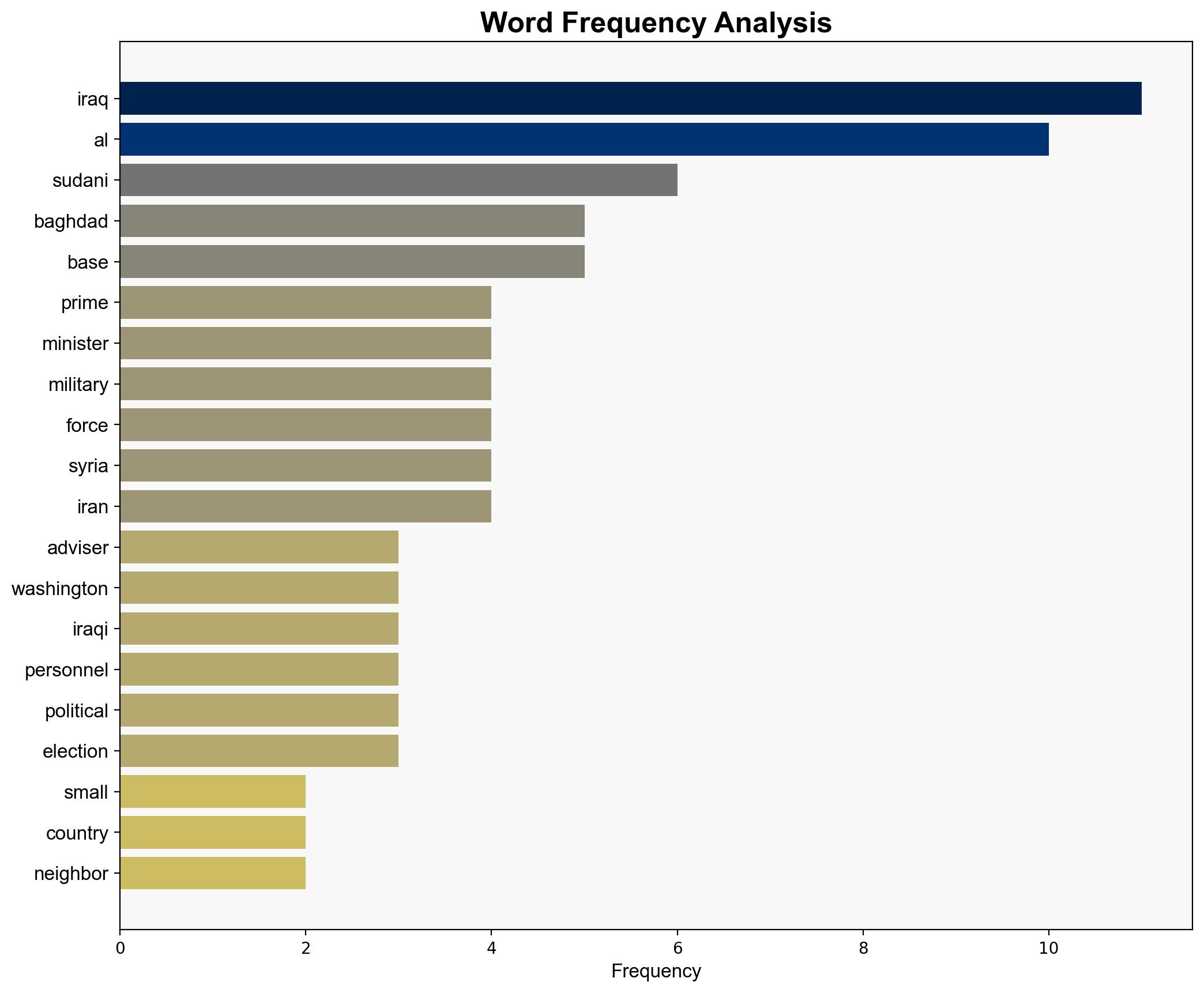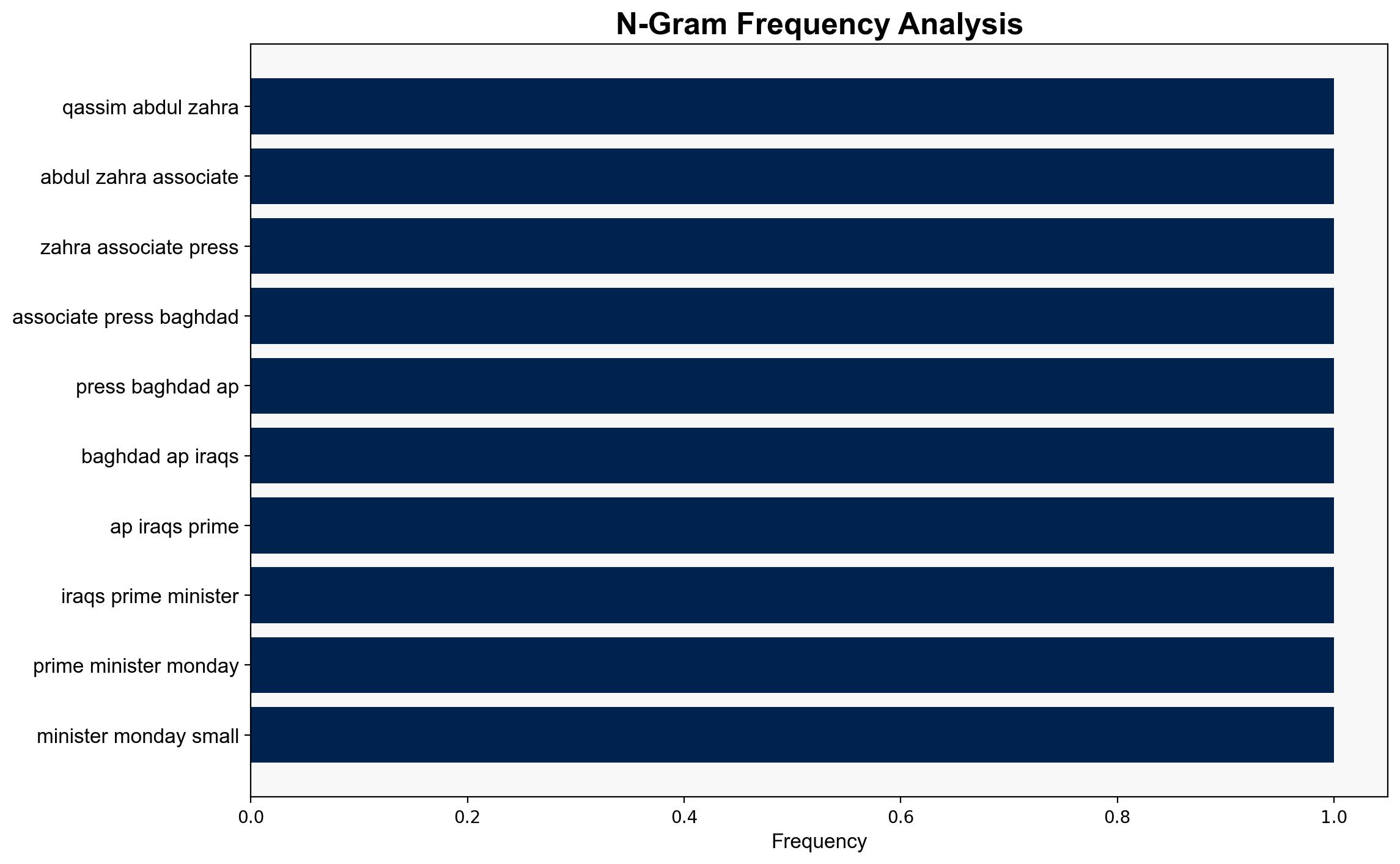Iraq says some US military advisers will stay due to IS threat in Syria – Boston Herald
Published on: 2025-10-20
Intelligence Report: Iraq says some US military advisers will stay due to IS threat in Syria – Boston Herald
1. BLUF (Bottom Line Up Front)
The most supported hypothesis is that Iraq’s decision to retain a small contingent of US military advisers is primarily driven by the genuine threat posed by the Islamic State (IS) resurgence in Syria. This hypothesis is supported by the strategic necessity to maintain regional stability and prevent a security vacuum. Confidence level: Moderate. Recommended action: Continue diplomatic engagement with Iraq to ensure alignment of security objectives and monitor IS activity closely.
2. Competing Hypotheses
1. **Hypothesis A**: Iraq’s decision to keep US military advisers is primarily motivated by the need to counter the IS threat in Syria, ensuring regional stability and preventing a security vacuum.
2. **Hypothesis B**: The decision is influenced by Iraq’s strategic balancing act between the US and Iran, using the presence of US advisers as leverage in regional power dynamics.
Using the Analysis of Competing Hypotheses (ACH) 2.0, Hypothesis A is better supported due to the explicit mention of the IS threat and the historical context of IS activities in the region. Hypothesis B is less supported but remains plausible given Iraq’s geopolitical positioning.
3. Key Assumptions and Red Flags
– **Assumptions**: It is assumed that the IS threat is significant enough to warrant continued US military presence. It is also assumed that Iraq’s government has full autonomy in its decision-making without undue external influence.
– **Red Flags**: Potential underestimation of Iran’s influence on Iraq’s decision-making. The possibility of Iraq using the IS threat as a pretext for other strategic objectives.
– **Blind Spots**: Lack of detailed intelligence on the current strength and capabilities of IS in Syria.
4. Implications and Strategic Risks
– **Regional Stability**: Continued US presence may stabilize the region temporarily but could also exacerbate tensions with Iran-backed militias.
– **Geopolitical Dynamics**: Iraq’s balancing act between US and Iran could lead to increased regional tensions if not managed carefully.
– **Security Risks**: A resurgence of IS could lead to increased terrorist activities, impacting both regional and global security.
5. Recommendations and Outlook
- Engage in continuous dialogue with Iraq to ensure mutual understanding of security objectives.
- Enhance intelligence sharing on IS activities to preempt potential threats.
- Scenario Projections:
- Best Case: Successful containment of IS threat with strengthened US-Iraq relations.
- Worst Case: Escalation of regional tensions leading to conflict involving Iran-backed militias.
- Most Likely: Continued low-level IS activity with periodic flare-ups, requiring sustained US-Iraq cooperation.
6. Key Individuals and Entities
– Mohammed Shia al-Sudani
– Islamic State (IS)
– US military advisers
7. Thematic Tags
national security threats, counter-terrorism, regional focus, geopolitical dynamics




